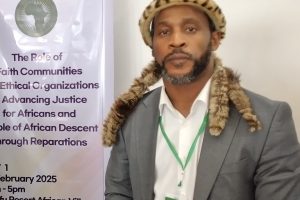
The tripartite talks between Egypt, Ethiopia and Sudan have once again reached a diplomatic dead end as Ethiopia asked the parties to the talks to conduct a wide-ranging consultative meeting with all the stakeholders in the country. The GERD issue is obviously an issue that cannot and should not be addressed by a single person, by a single party or by the government alone. The GERD is an all- Ethiopian project and as such it needs the approval of the Ethiopian people before the signing of the final agreement.
By referring the issue to all the stakeholders, the government has done an excellent job of democratic decision making. This is a good indication that the era of a one-man show, and big man politics is over now. The GERD is too big to fail and too important to be decided on by even the wisest man in the land. What the government needs to do now is to go to parliament and ask for consensus before deciding to sign or not sign the final agreement.
Ethiopia’s decision to hold nationwide consultative meetings before signing the much-expected final agreement on the filling of the GERD has legitimately triggered public enthusiasm both here at home and in the Diaspora. Ethiopians in all walks of life are closing ranks and supporting the government’s decision not to sign the proposed final agreement because that will impose conditions that are perceived as damaging to Ethiopia’s national interest. Ethiopia is the natural origin of the biggest share of the Nile river, has the right to articulate its interests without however infringing upon the rights of downstream riparian states, including Egypt and Sudan.
Ethiopian political elites are usually divided along policy and other considerations. There is much rift or misunderstanding between opposition politicians and the government as well as among opposition politicians who do not readily agree on many political, economic and social issues. Although elite cleavages are self-evident in contemporary Ethiopian politics, the Ethiopian people never entertained contradictory visions.
The elite divisions may sometimes spill over to the people and communities simply because the political elites often tend to bring their differences and impose them on the people they claim they represent. However, the people of Ethiopia remained united as far as Ethiopia’s national interests are concerned.
When it comes to an issue as important to the country as the GERD project, political elites and the people are untied as they are now. Inter-elite cleavages tend to be overlooked or completely disappear because the national interest is greater than any party or interest group. That is what is slowly emerging now in Ethiopia in the context of the GERD controversy. Many people, particularly in Egyptian circles, may think that Ethiopia took advantage of Egypt’s political turmoil back in 2011 in order to launch the GERD project. They often look at it as a conspiracy to use Egypt’s weakness and turn it into Ethiopia’s advantage. But this is not true.
Ethiopia’s quest for developing its water resources in general and the Nile waters in particular goes back to the time of the Ethiopian monarchy and continued during the Derg government and only started to be realized now. It has never been a conspiracy but a dream of development by all Ethiopian governments and this is why that the credit as well as the blame cannot go to this or that leader or government.
However, this wrong perception on the part of some Egyptian government and academic circles seems to be the driving factor behind the decision to impose or enforce a one-sided policy option on Ethiopia on the incorrect belief that Ethiopians may now be divided along ethnic or nationality lines and that the country is weakened by internal political feuds. This is far from being true because the political differences among the political elites is not dividing the people at the grassroots levels.
This is most evident now that the Ethiopian people are facing one of the toughest tests of their unflinching unity and cohesion in the face of threats to their collective interests. If any foreign government bases its policy on the GERD project on the wrong assumption that the people of Ethiopian people are divided is going to be disappointed. This would only have the opposite effect of uniting the people and the political elites as it is doing at present.
Egypt’s major diplomatic mistake or fallacy is to bring the GERD issue to the attention of the US administration or to the World Bank as mediators or observers whatever the case might be. It does not matter whether the US offered to serve as mediator or vice versa. The fundamental question is why the US, is interested in the GERD controversy or why the World Bank is present at the talks. Some people may thing that the Ethiopian government should not have gone to the Washington talks in the first place with the US and the World Bank as so-called facilitators.
Yet, one should know that the willingness to sit down and talk to hammer out differences is the real basis and function of diplomacy. So, the Ethiopian government has done the right thing by going to Washington for the talks. The mistake would be to accept the terms and final outcome of the negotiations or the singing of the final agreement as it stands now. Refusing to go to the talks would be considered a sign of political myopia and a failure of diplomatic patience.
Initially the Tramp administration was given the benefit of the doubt but time is progressively showing that the US is not only a neutral facilitator but a committed supporter of the Egyptian position. One has only to look at the reaction of the administration following last week’s Ethiopian decision not to go the Washington for the singing of the agreement before achieving a domestic consensus.
Egypt Today on its website page last week quoted US Treasury Secretary Steven T. Mnuchin as saying, “We appreciate the readiness of the government of Egypt to sign the agreement and the initialing of the agreement to evidence its commitment,” adding, “consistent with the principles set out in the DoP, and in particular the principles of not causing significant harm to downstream countries, final testing and filling should not take place without an agreement.”
The statements by the US treasury secretary as strikingly similar to those of the Ministry of Foreign Affairs of Egypt that has unilaterally initialed the deal saying, “in light of the fact that this agreement preserves Egypt’s water interests and ensures that it is not subjected to significant harm, Egypt has initialed this agreement as an affirmation of its serious will to achieve its objects and purposes.”
The statement by the Egyptian Ministry of Foreign Affairs is similar to the US statement but also fails to mention Ethiopia’s interests as to the time and pace of the filling of the dam when it unilaterally mentioned that “the agreement preserves Egypt’s water resources”. From the beginning of the negotiations right to this point in time, the Egyptians had in mind the reaffirmation of their interests as articulated in the archaic or anachronistic colonial time agreements in which Egypt was considered the de facto if not the de jure proprietor of the Nile waters. The same idea has now found expression in the statement we quoted above, albeit with a different phraseology.
Ethiopia is not of course the sole possessor of the Nile waters but that of the GERD and
it is trying to protect its interests in that connection. Neither the US administration nor the World Bank has nothing to do with the GERD because they don’t finance it or lend money for its completion. Now that these quarters have shown their true colors as defenders of Egypt’s interests, there is no hope in seeking impartiality or justice from them. What the US, the World Bank and the Egyptian government will do next, is up to them but Ethiopia has now the sole option of continuing with the filling of the dam as scheduled because stopping work on the dam would be tantamount to accepting Egypt’s and her friends’ thinly veiled threats or disguised ultimatum.
The US threat is now presented in a diplomatic language as the website we quoted above put it. It says that the US, “cautioned Ethiopia against testing and filling the dam without reaching an agreement.” Ethiopia on the other hand has made it clear that, “it will not sign any agreement that would make it give up its Nile waters rights.” as the Ethiopian Ambassador to Washington Fitsum Arega tweeted last week.
Ethiopia can still refer the issue to the African Union and seek African solution to this great African controversy on the basis of its Charter and by taking the balanced interests of the three parties to the controversy, because the AU is less likely to take sides in the dispute. It would rather engage the other downstream countries if necessary and give the issue a broader perspective by creating a sense of inclusion, which is the only way for the disputing countries to find a common ground for mutually acceptable solution.
Nevertheless, time will however show which direction will the future of the GERD take while Ethiopia should not stop work on the dam even for a minute as it has so far done. Doing otherwise would send the wrong signal that Ethiopia might be wavering or surrendering.
The Ethiopian people have decided to build the dam with their money, sweat and blood if necessary. No force can make them change their mind and no backdoor dealings or hidden motives can undermine their resolute stance. It may be easier to try old tricks and manipulate a few diplomats, but it is impossible to manipulate 100 million people once they have made their minds.
The Ethiopian Herald Sunday Edition 8 March 2020
BY
MLUGETA GUDETA





